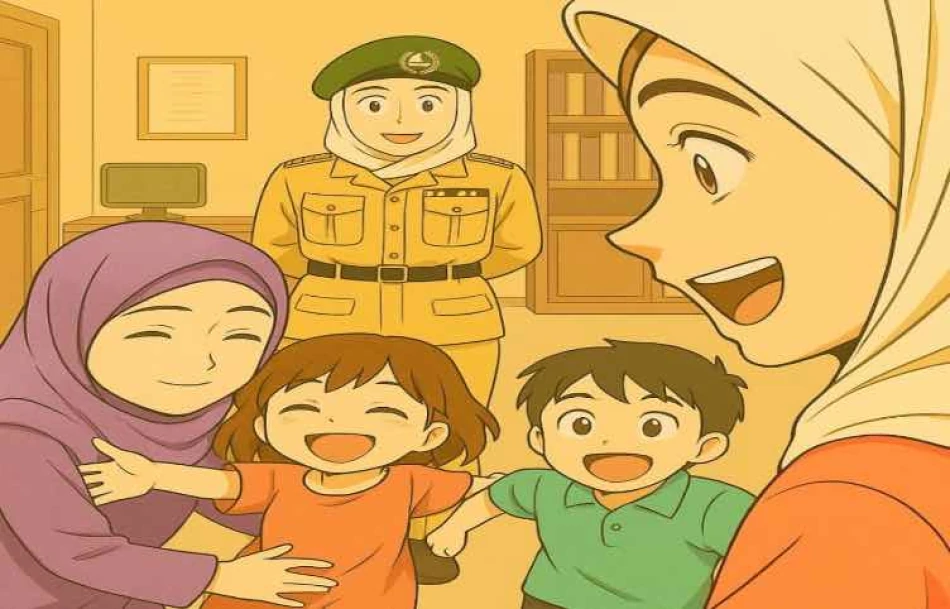
Dubai Police Surprise Inmate with Visit from Her Children at Correctional Facility
Dubai Police's Groundbreaking Prison Reform Shows How Rehabilitation Can Work
Dubai Police has orchestrated an emotional family reunion between an incarcerated mother and her four children as part of a broader initiative to humanize prison conditions. The surprise visit, coordinated with Dubai's Community Development Authority, represents a significant shift toward rehabilitation-focused corrections that could influence prison reform across the Middle East and beyond.
The Human Touch in Criminal Justice
The reunion took place under Dubai's "Prisoner Happiness" initiative, launched by the General Administration of Punitive and Correctional Institutions. Prison officials noticed that the female inmate had been isolating herself from other prisoners and, upon investigation, discovered her deep longing to see her children after an extended separation due to family circumstances and her incarceration.
Colonel Jamila Al Zaabi, director of the women's prison, explained that staff continuously monitor inmates' psychological well-being. When they told the mother she had a visitor, she expressed surprise—only to break down in tears of joy upon seeing her four children. The emotional reunion highlighted the psychological toll of family separation during incarceration.
Strategic Shift Toward Rehabilitation
This initiative reflects Dubai's broader strategy to integrate social and humanitarian aspects into its correctional system. Rather than focusing solely on punishment, the approach aims to maintain family bonds that research consistently shows are crucial for successful reintegration into society.
Building Trust Through Compassion
The program serves multiple strategic purposes beyond immediate humanitarian relief. By facilitating family connections, Dubai Police is working to strengthen community trust in law enforcement while promoting values of tolerance and coexistence that align with the UAE's national priorities.
Global Context and Implications
Dubai's approach contrasts sharply with punitive prison systems elsewhere in the region and aligns more closely with progressive models seen in Scandinavian countries, where family contact is considered essential to reducing recidivism. The initiative also reflects the UAE's broader soft power strategy of positioning itself as a moderate, forward-thinking nation.
Lessons for International Prison Reform
The success of such programs could provide a template for other Gulf states and developing nations seeking to modernize their criminal justice systems. By demonstrating that humanitarian approaches can coexist with security concerns, Dubai is challenging traditional assumptions about prison management in conservative societies.
The Ripple Effect
The mother's gratitude, expressed alongside her children, underscores how small gestures of humanity can transform the prison experience. Such initiatives may prove more effective at preventing repeat offenses than purely punitive measures, potentially reducing long-term costs to society while improving public safety outcomes.
As governments worldwide grapple with prison overcrowding and high recidivism rates, Dubai's experiment in compassionate corrections offers a compelling case study in how law enforcement can evolve beyond traditional paradigms while maintaining public order and safety.
Most Viewed News

 Sara Khaled
Sara Khaled






